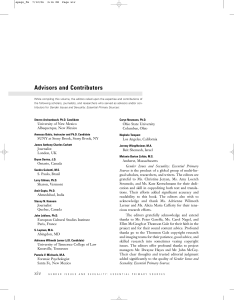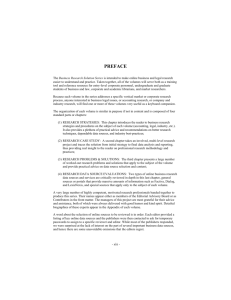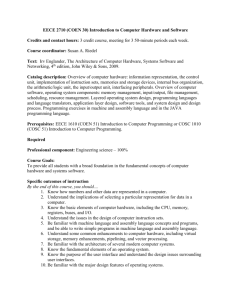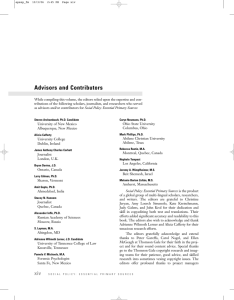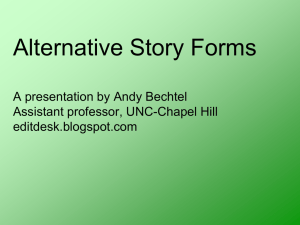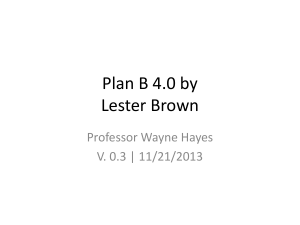Theory and method flyer 2014
advertisement
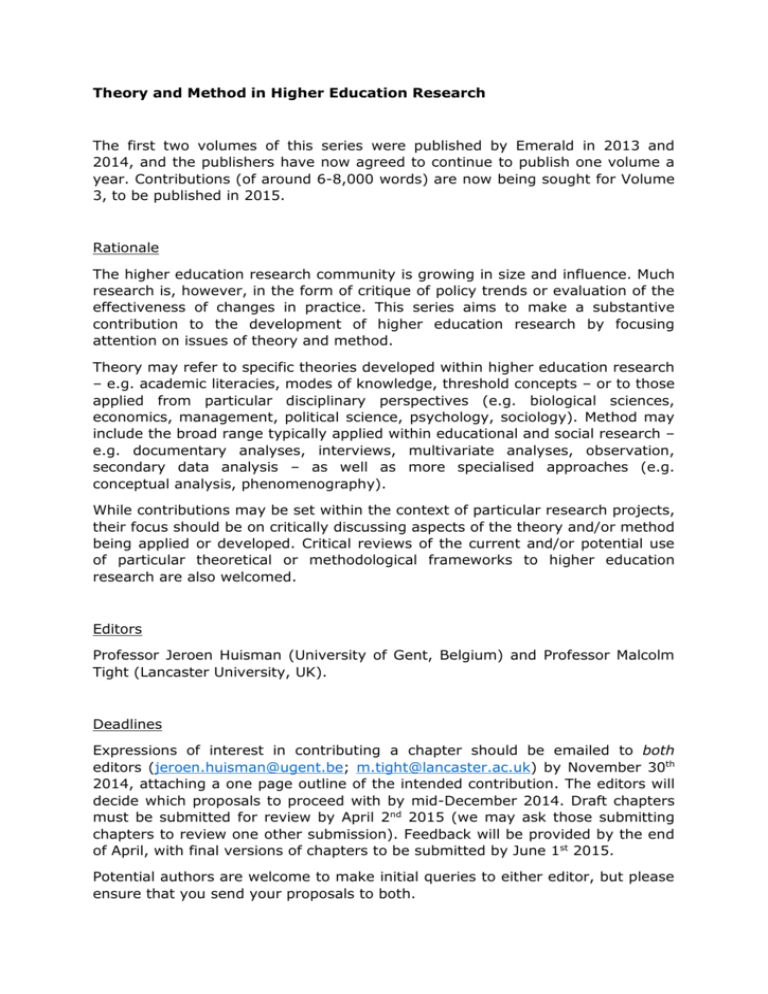
Theory and Method in Higher Education Research The first two volumes of this series were published by Emerald in 2013 and 2014, and the publishers have now agreed to continue to publish one volume a year. Contributions (of around 6-8,000 words) are now being sought for Volume 3, to be published in 2015. Rationale The higher education research community is growing in size and influence. Much research is, however, in the form of critique of policy trends or evaluation of the effectiveness of changes in practice. This series aims to make a substantive contribution to the development of higher education research by focusing attention on issues of theory and method. Theory may refer to specific theories developed within higher education research – e.g. academic literacies, modes of knowledge, threshold concepts – or to those applied from particular disciplinary perspectives (e.g. biological sciences, economics, management, political science, psychology, sociology). Method may include the broad range typically applied within educational and social research – e.g. documentary analyses, interviews, multivariate analyses, observation, secondary data analysis – as well as more specialised approaches (e.g. conceptual analysis, phenomenography). While contributions may be set within the context of particular research projects, their focus should be on critically discussing aspects of the theory and/or method being applied or developed. Critical reviews of the current and/or potential use of particular theoretical or methodological frameworks to higher education research are also welcomed. Editors Professor Jeroen Huisman (University of Gent, Belgium) and Professor Malcolm Tight (Lancaster University, UK). Deadlines Expressions of interest in contributing a chapter should be emailed to both editors (jeroen.huisman@ugent.be; m.tight@lancaster.ac.uk) by November 30th 2014, attaching a one page outline of the intended contribution. The editors will decide which proposals to proceed with by mid-December 2014. Draft chapters must be submitted for review by April 2nd 2015 (we may ask those submitting chapters to review one other submission). Feedback will be provided by the end of April, with final versions of chapters to be submitted by June 1st 2015. Potential authors are welcome to make initial queries to either editor, but please ensure that you send your proposals to both.




